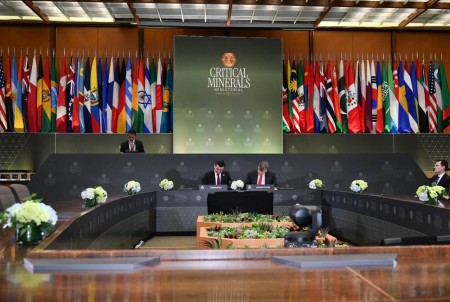President Shavkat Mirziyoyev signed the Bill restricting distribution and consumption of alcohol and tobacco products into Law. The Restricting the Distribution and Consumption of Alcoholic and Tobacco Products Law is aimed at protecting the health of individuals, primarily those aged under 21, from the harmful effects of the use of alcohol and tobacco products, associated social and other negative consequences.
The new Law has defined basic concepts such as alcohol and tobacco products, environmental tobacco smoke, snus, tobacco, nasvay, hookah and others.
Among the main areas of national policy course in the field of restricting the distribution and consumption of alcohol and tobacco products are protection from the negative impact of the use of alcohol and tobacco products, tobacco smoke, as well as the implementation of state programs in the field of restricting the distribution and consumption of alcohol and tobacco products.
There is a ban on the sale of alcohol and tobacco products, devices for the use of tobacco and nicotine to persons under the age of 21.
Now the seller is obliged to demand from buyer, who looks younger than 21, to present a document proving his identity and age, and in the absence of a document, to refuse to sell alcohol and tobacco products, devices for using tobacco and nicotine.
One can not sell alcohol:
• without the direct participation of the seller, including through vending machines, other electronic or mechanical devices;
• from self-service shelves;
• through online commerce, including through delivery to end consumers by any means (except for sparkling and natural wines);
• by delivery (from hands, trays, from baskets, handcarts);
• outside stationary retail facilities;
• in pharmacies;
• in premises intended for the sale of children's goods;
• on the territories of healthcare system organizations, educational organizations, cultural institutions, health and fitness and sports facilities, sanatoriums and medical and social institutions;
• in rooms and places that do not meet sanitary standards and rules for the storage and sale of alcoholic and tobacco products, devices for the use of tobacco and nicotine;
• in the territories and premises (excluding duty-free shops) of railway stations, bus stations, airports, river ports, subway stations - in relation to tobacco products and devices for using tobacco and nicotine.
Points of sale located less than 100 meters in a straight line from educational, sports and religious organizations are prohibited from selling alcohol and tobacco products. The exception is trade facilities located on the territory of shopping malls (markets) with a total trading area of more than 1,000 sq. m. m and in the fair pavilions.
The following sales bans apply to cigarettes:
• if the consumer package (pack) of tobacco products contains less than 20 cigarettes;
• without consumer packaging (pack, block);
• individually or with opened (in integrity) consumer packaging (pack);
• in one set with other goods that are not tobacco products and devices for the use of tobacco and nicotine.
The document expanded the list of public places where the use of tobacco products and the use of devices for the use of tobacco and nicotine are prohibited:
• in objects of trade and provision of services, including catering establishments;
• in cinemas, theatres, circuses, concert, viewing and exhibition halls and other indoor structures intended for public recreation;
• in clubs, discotheques, computer rooms, rooms equipped to provide access to the worldwide information network Internet, or in other places of entertainment;
• in museums, information and library institutions and lecture halls;
• in local and long-distance trains, on river vessels;
• in buses, subway cars, taxis, urban electric transport, aircraft, as well as other types of public transport;
• in underground passages, at metro stations, transport stops and covered places for temporary storage of vehicles;
• in open air places at a distance of less than 5 m from the entrances to railway stations, bus stations, airports, river ports, metro stations;
• in fire hazardous places, including petrol stations;
• in the buildings of airports, railway and automobile stations, river ports;
• in the buildings of enterprises, institutions, organizations and government bodies, including at the workplace, in corridors, elevators, stairs, lobbies, toilets, rest rooms, adjacent premises and in other similar places used by the employee during labor activity;
• in organizations of the healthcare system, pharmacies, educational organizations, cultural institutions, health and fitness and sports facilities, sanatoriums and medical and social institutions;
• in premises intended for the provision of accomodation services, hotel services, services for temporary accommodation and (or) provision of temporary accommodation;
• in the entrances and elevators of multi-apartment residential buildings, as well as on children's and sports grounds, including those located in the local area;
• in squares, parks and beaches.
The Law will take effect after three months after its official publication.














